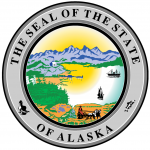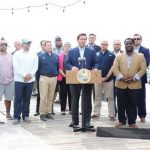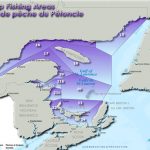Tag Archives: seasonal workers
Dear Seamus: All Seasonal Workers Want for Christmas is Dignity and Respect
 This Christmas season, seasonal workers in Newfoundland and Labrador are in crisis due to a failure of the federal government. Despite months of broken promises, the federal government has largely failed to support seasonal workers facing financial crisis this winter season. This Union signalled the coming crisis to the federal government back in April when the markets for snow crab collapsed. At the time, FFAW-Unifor proposed needed changes to the federal employment insurance (EI) system and income supplements for all affected fish harvesters and plant workers. “The crab fishery came and went, and just as the fishing season began to wind down and folks prepared to file their annual EI claims, the federal criteria for EI changed. more, >>click to read<< 14:26
This Christmas season, seasonal workers in Newfoundland and Labrador are in crisis due to a failure of the federal government. Despite months of broken promises, the federal government has largely failed to support seasonal workers facing financial crisis this winter season. This Union signalled the coming crisis to the federal government back in April when the markets for snow crab collapsed. At the time, FFAW-Unifor proposed needed changes to the federal employment insurance (EI) system and income supplements for all affected fish harvesters and plant workers. “The crab fishery came and went, and just as the fishing season began to wind down and folks prepared to file their annual EI claims, the federal criteria for EI changed. more, >>click to read<< 14:26

North Pacific Seafoods faces class action lawsuit for workers’ alleged rodent-infested, moldy lodging and wage theft
The seafood processing industry in Alaska attracts thousands of seasonal workers, many of whom are from out of state. North Pacific Seafoods Inc., responsible for roughly 10% of Alaska’s fisheries market and 800 seasonal employees annually, is facing a class-action lawsuit that claims its seasonal workers were provided unsafe, unsanitary working conditions, experienced wage theft and had their complaints to supervisors ignored. >click to read< 12:39
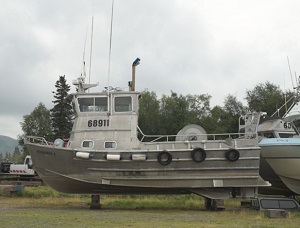
Coronavirus: Bristol Bay community leaders lay out minimum protocol needed to allow salmon season
Leaders of several major community organizations in Bristol Bay have issued a list of minimum protocols they expect to be in place before the commercial salmon fishery can take place this summer. Among other the protocol listed, fishermen and other seasonal workers would undergo a physical exam including a COVID-19 test with a negative result no more than 48 hours before traveling to the region. After arriving in Bristol Bay, the individuals would be transported to a quarantine location and remain in quarantine until a follow-up negative COVID-19 test is confirmed. The leaders listed out other expectations, including weekly health screenings, for the seafood industry to establish as minimum protocol for the 2020 season. >click to read< 11:12
Some Alaska fisheries had a record-setting year for wild salmon. But no one wanted to gut all those fish
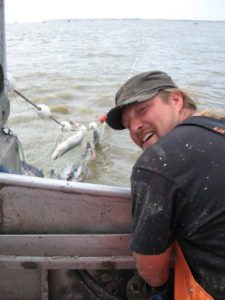 At the outset of the salmon season, fisherman Everett Thompson was looking forward to a banner year. The Alaska Department of Fish and Game had estimated that 41 million wild sockeye salmon would come to Bristol Bay, an eastern nook of the Bering Sea formed by the Alaskan Peninsula. Ultimately, 59 million salmon returned—the most since 1980—leading to record hauls in parts of the region, which contributes 40 percent of the world’s annual sockeye harvest. For a state that prides itself on sustainable salmon and ranks its seafood industry just below oil and gas, this should have been good news. As the annual migration reached its peak around July 4, Thompson and his deckhands were netting 15,000 pounds of salmon in six hours. Then he got an unexpected call from the plant manager. The message: Stop fishing. click here to read the story 09:28
At the outset of the salmon season, fisherman Everett Thompson was looking forward to a banner year. The Alaska Department of Fish and Game had estimated that 41 million wild sockeye salmon would come to Bristol Bay, an eastern nook of the Bering Sea formed by the Alaskan Peninsula. Ultimately, 59 million salmon returned—the most since 1980—leading to record hauls in parts of the region, which contributes 40 percent of the world’s annual sockeye harvest. For a state that prides itself on sustainable salmon and ranks its seafood industry just below oil and gas, this should have been good news. As the annual migration reached its peak around July 4, Thompson and his deckhands were netting 15,000 pounds of salmon in six hours. Then he got an unexpected call from the plant manager. The message: Stop fishing. click here to read the story 09:28




































